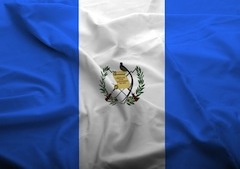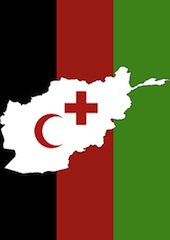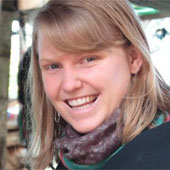Human Rights in Latin America: The Rios Montt Genocide Trial
What does the genocide conviction of Guatemala’s former General Rios Montt mean for the survivors?
May 15, 2013

It is a long way between the courtroom in Guatemala City where former president Efraín Ríos Montt recently stood trial for genocide and the town of Chajul, deep in the Guatemalan highlands, where many of the human rights abuses were committed.
The distance goes beyond the seven-hour stomach-wrenching drive; the courtroom is a different world entirely.
The witnesses looked out of place in the sterile courtroom as they politely remove a worn farmer’s hat or reboso, traditional scarf, before they told their story.
The trial and conviction of Ríos Montt was a huge step in Guatemala’s reconciliation of its violent past — and an international event, as it marks the first time a former head of state was tried for charges of genocide in a home-country court.
But few people in Chajul held their breath for the verdict.
The courtroom is a world apart from where the violence occurred; many doubt the ruling will change anything here. Plus, with firewood to be gathered, tortillas to be made and nightmares of the war to endure, few people have time to wonder what justice means.
Chajul is one of three towns in the Ixil triangle; Ríos Montt was accused and convicted of committing genocide against the Ixil people in the mountains here.
The town of 20,000 people is often shrouded in the clouds; people warm up around open cooking fires on dirt floors. Chajul boasts a beautiful Catholic church — occupied for 20 years as an army base — evangelical churches on every corner and many cantinas. These are the places where you seek refuge from your trauma.
According to a 1999 United Nations truth commission, between 70-90 percent of Ixil villages were burned and 60 percent of the population fled to the mountains during the most violent years of the war, from 1982 to 1983.
Those were the years that Ríos Montt was in power. By the time the 1996 Peace Accords ended the thirty-six year civil war, 7,000 Maya-Ixil had been killed.
Today, the population of Chajul each day lives the effects of the armed conflict. The town has seen little government or international support in recovery efforts, and this lack of investment slows efforts to overcome war-inflicted damage.
The area has some of the lowest socio-economic indicators in Guatemala and there is little culture of formal education. A 2010 study by the Ministry of Education found that fewer than 11.5 percent of students in Chajul graduate from middle school and 39 percent of the adult population is illiterate. You can’t learn if you can barely survive.
But I have seen changes as increasing numbers of kids pull school sweaters over traditional woven shirts and head to class. For the last 18 months, I’ve worked with Limitless Horizons Ixil, the first non-profit organization in Chajul.
We have spent eight years fostering a culture of education in a community still traumatized and recovering from the civil war. Now, every Wednesday a hundred students gather in the Limitless Horizons Ixil community library for story hour.
The library has 1,400 card-carrying members, many of whom have to check their shoe-shining kits at the door. This is their chance to learn.
While the war is still alive in its daily repercussions, Chajul now has a new generation of young people who are working to educate themselves and pave the way for change in their community.
Ana Eymi Canay Canay is one of them. Eymi (pronounced Amy) is on track to be one of the first women in Chajul to earn a university degree, and she has already joined the small class of professionals.
Eymi did not live the war — she is just 20 years old — but she was raised on her mother’s stories of survival. Her mother, Ana, lived with her husband and six children in a remote area north of Chajul.
As the civil war heated up around them, the area grew increasingly violent. Ana fled air raids while pregnant, endured the torturous death of her husband, and made it to the municipal capital of Chajul, which was under army control.
Ana is illiterate, but she raised her children to value education. On the way home from working the fields after school every day, Ana told her children they would achieve great things if they studied.
When Limitless Horizons Ixil created a scholarship program for motivated youth, Eymi was a shoo-in. In January, she joined the Limitless Horizons Ixil staff as a program associate.
Eymi greets families as they come in for advice from local program mentors, she engages students as they start their homework in the computer lab, and she provides the community with a powerful example that you can realize your dreams.
Eymi’s computer login says just that: Cumplí mi meta, I achieved my goal.
As Ríos Montt’s trial and conviction draws international attention, it is vital to look beyond the courtroom to the areas that suffered most. These areas will be scarcely impacted by the results of the trial, as the past cannot be repaired by a Supreme Court ruling.
It will be a new generation of leaders that reconciles the past and rebuilds their communities. The attention of the world must now shift from examining the past to investing in this new generation. That would be the greatest form of justice.
Takeaways
The trial is the first time a former head of state was tried for genocide in a home-country court.
Between 70-90% of Ixil villages were burned and 60% of the population fled.
The town has seen little government or international support in recovery efforts.
On Wednesdays, a hundred students gather in Chajul's community library for story hour.
Read previous

Why Aid Workers Are Targets
May 14, 2013
